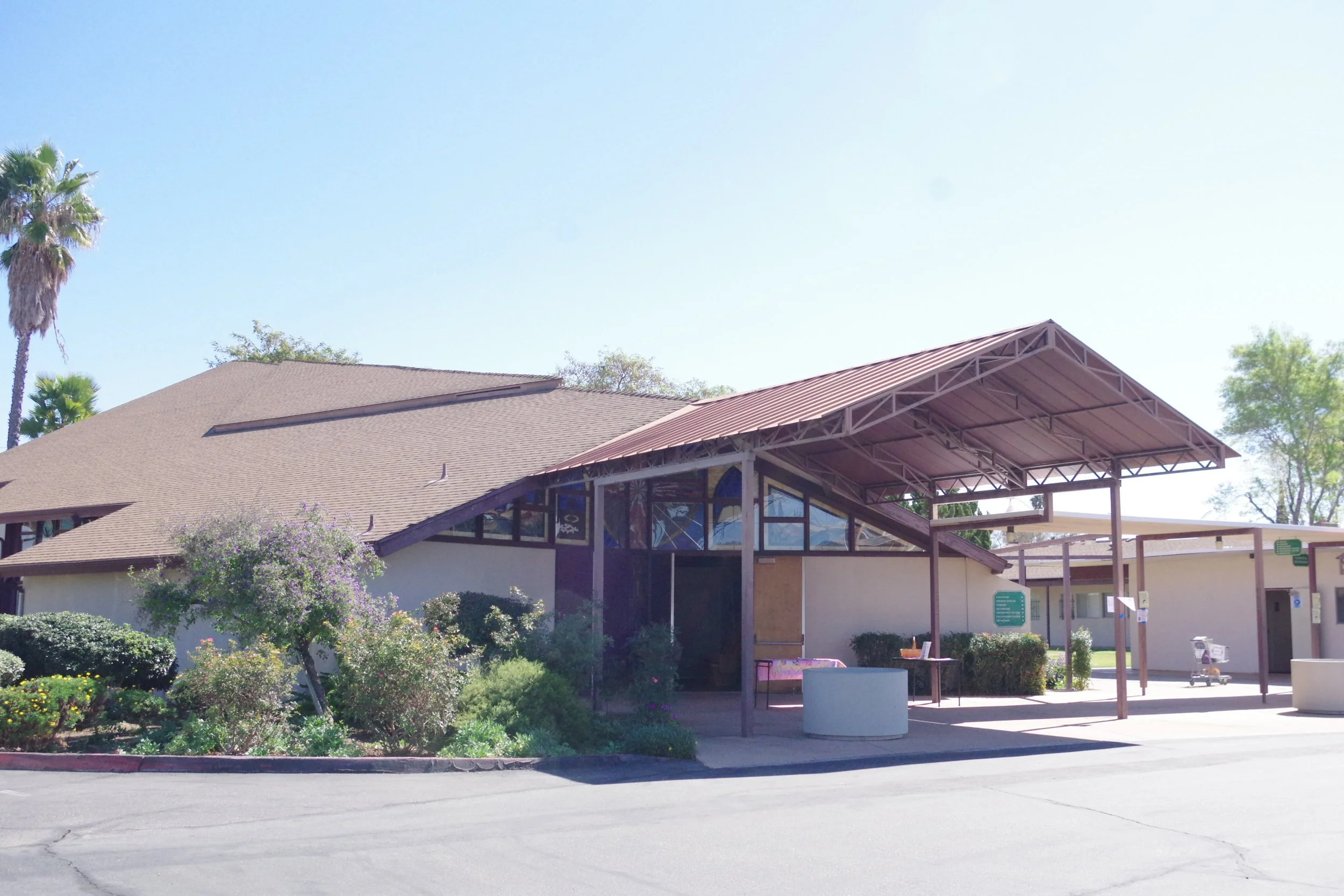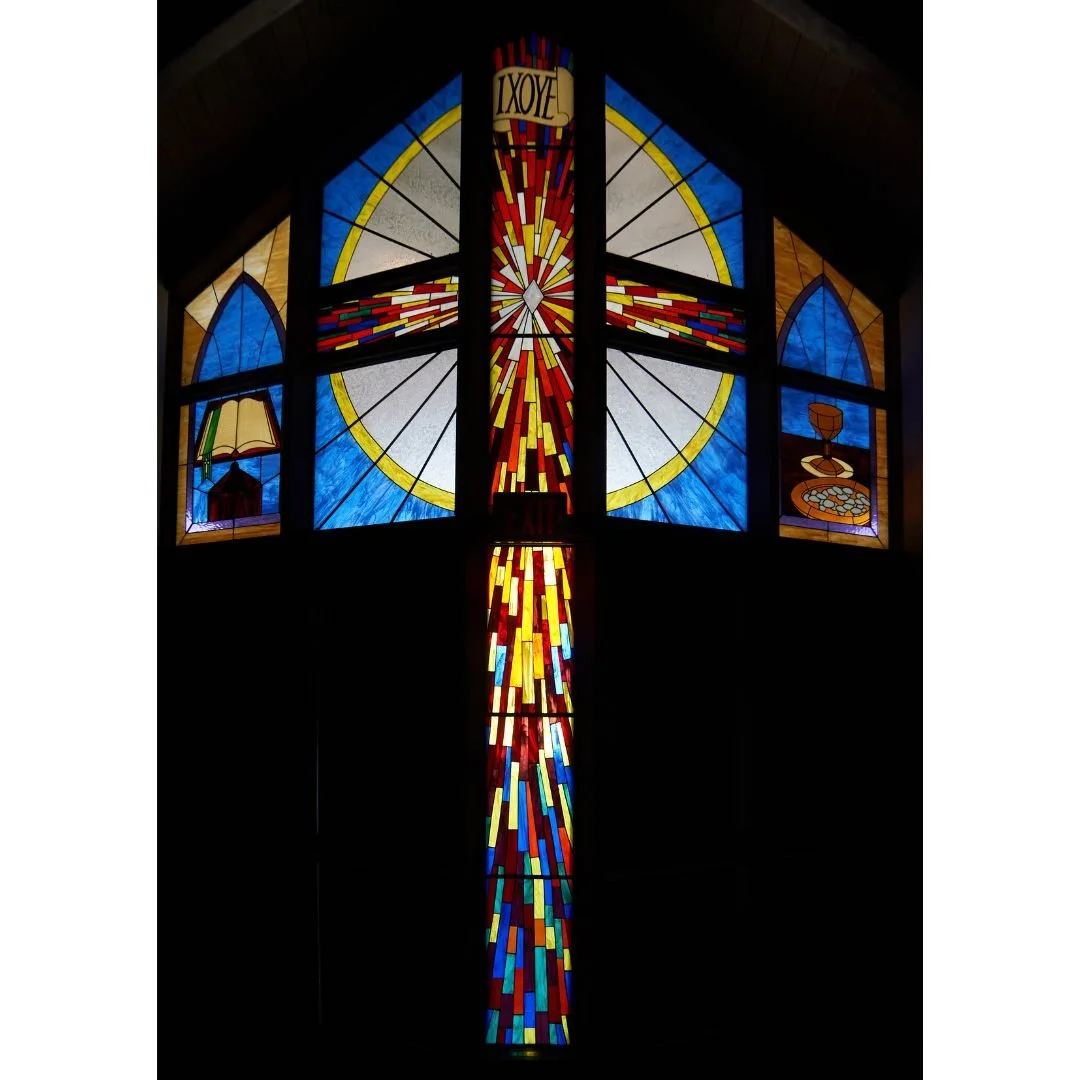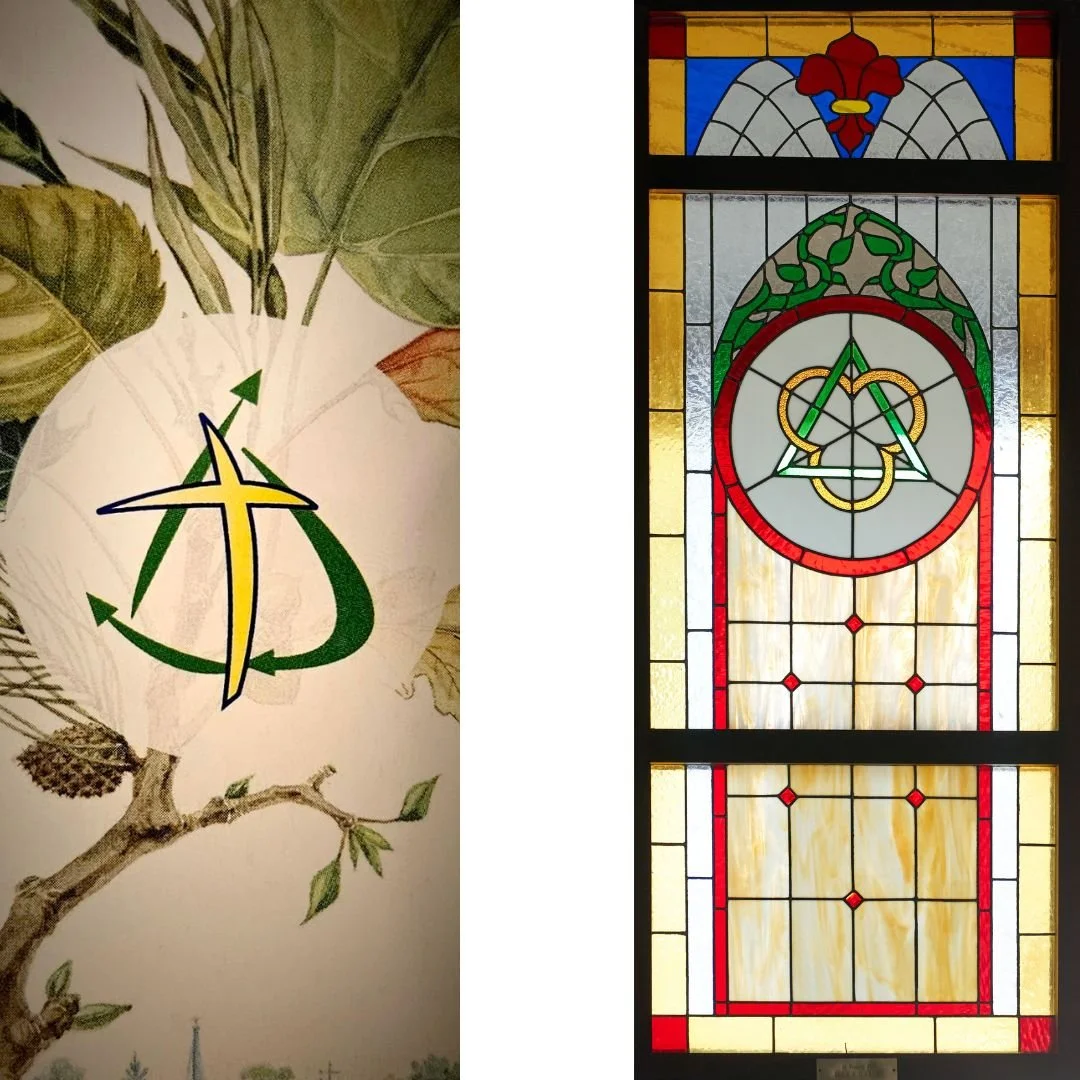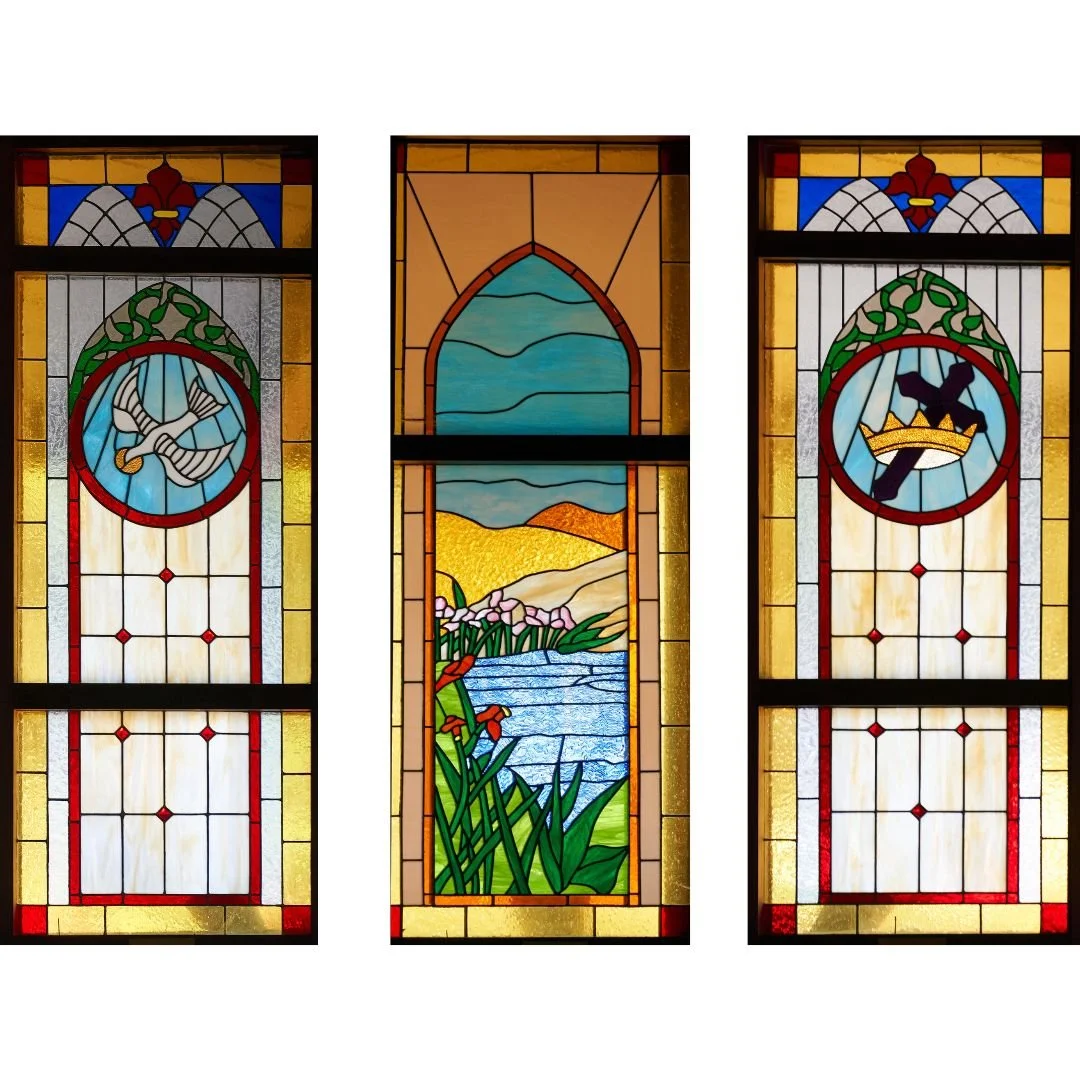Luke 2:1-7
In those days a decree went out from Caesar Augustus that all the world should be registered. This was the first registration when Quirinius was governor of Syria. And all went to be registered, each to his own town. And Joseph also went up from Galilee, from the town of Nazareth, to Judea, to the city of David, which is called Bethlehem, because he was of the house and lineage of David, to be registered with Mary, his betrothed, who was with child. And while they were there, the time came for her to give birth. And she gave birth to her firstborn son and wrapped him in swaddling cloths and laid him in a manger, because there was no place for them in the inn.
Grace, mercy and peace to you, from God our Father and from our Lord and Savior, Jesus, Christ, amen. Christmas is pretty wonderful, isn't it? We have a song. It's the most wonderful time of the year for that very reason. Of course, we decorate our homes in ways that sometimes we don't even my house this year, we got our tree up just in time for Christmas, which is a little unusual for us, given the way things work. Christmas is filled with decorations and excitement and parties and all of that, and we have lots of stories that we tell and retell during this time of year. I grew up with the claymation stories. You probably remember them, the ones with reindeer and the glowing nose. That was a great one. I think it had an island of misfit toys, we learned some good lessons from that. One, all about welcoming others and enjoying the differences. I remember one about Frosty the Snowman. I think there was a hat that was magic. Another claymation special. We've got lots of tales that we tell. Sometimes we watch them over and over on our TVs, and we learn great lessons about them. It wouldn't be a Christmas if I didn't mention National Lampoon's Christmas Vacation and the power of family to come together even when your tree burns down lots of stories and legends. Many of these might as well start with that classic thing that we begin the legends or fables that we know once upon a time. It's because they have a status that gives us this almost eternal story that never really has a time or a place or even better, we started them a long time ago in a galaxy far, far away. These stories teach us good things, and often we say that they're about things like the spirit of Christmas, spirit of generosity or joy, or some sort of generic Christmas sentiment. And sometimes I think the stories that we read in here can take on the air of legend, fable or myth, when we gather together with our candles, with the lights on the Christmas tree, as we do every year, and we rehearse the story of Jesus' birth, sometimes it seems like, well, maybe it starts the same way, once upon a time, or Long, long ago, in a galaxy far, far away. And it's kind of amazing. The stories too. They're fantastical. They're out there. You look at the stories that we hear, an angel shows up in a virgin's bedroom in a little town of Nazareth and says, Hey, lady, you're going to have a baby. And she goes, Great. That's weird. That's strange. That's out there, isn't it. The shepherds are out in a field keeping watch over their flocks. By night, they don't get a text message, angels appear in the sky, the whole Heavenly Host singing Gloria enig shall sees deo
and then wise men from the East, they see a star. I see stars every night. I don't travel 1000 miles by foot. They see a star. And they walk likely from Persia all the way to Jerusalem, and then they end up in Bethlehem, and they give expensive gifts to a kid sitting next to a donkey. These stories are a little fantastical, a little out there, a little weird, and sometimes, sometimes I think we treat them like those stories. We tell the legends, the fairy tales, the once upon a time, and we look at the story of Jesus, God becoming a human being, and we start to think this story is really a. About the spirit of Christmas. It's a story to teach us something about, I don't know, maybe about family or generosity, or that generically, we like peace, and that's sort of what it's all about. But one of the readings that we read tonight tells us that this is not a legend or a fairy tale or something that starts a long time ago in a galaxy far, far away. Our reading from Luke tells us exactly when this story happened, and it's really important. It says, In those days, a decree went out from Caesar Augustus that all the world should be registered. This was the first registration when Quirinius was governor of Syria. Now you never thought your pastor would preach about that, right? It's almost a throwaway line. Sure we've got this guy, Caesar Augustus, most of us remember him from our history classes, but Quirinius, what is going on here? Luke doesn't mention these people by accident. He mentions important and famous rulers from the region to let us know something very simple, this really happened. It is not made up. It is not set in a far away place. Once upon a time, it happened during real times and in a real place. And we know Caesar Augustus was the emperor of Rome who created the Roman Empire, as most of us think about it, and he reigned from 27 BC until he died in 14 ad not just in the Bible. We all know about this guy. We also know from the Bible that Jesus was born during the reign of Herod, the great who ruled until he died in about four BC and Quirinius, famous governor of Syria, one of the most important ones, who actually annexed Judea into his territory and had one of the most important censuses of the time that everybody would have known about. Luke is telling us this really happened. You may have noticed that I said Herod died in four BC, and shouldn't Jesus be in the ad? Now we actually screwed that up in our dating what it means is Jesus was probably born somewhere between six BC and four BC, and it helps us to see this is not a myth, a legend or a fairy tale. It is not a thing that is there to give us a lesson about the good life or help us to learn something about the spirit of the season. Jesus is actually God becoming a human being, God who was sent by his father to join with us, to free us from the curse of sin, so that we can live forever with Him. And it's not only that. The rest of the story really happened too. This same Jesus grew up. He went out to Galilee, where he taught to the crowds. He healed the sick, he cast out demons, he walked on water, he calmed the storm, he fed 5000 people with just a few loaves of bread and fish. He forgave sinners and brought together people who needed the love and grace of God, and then he climbed up a mountain where the father looked at him and said, This is my son whom I love. Listen to Him, and from that mountain, he walked a path straight to the city of Jerusalem, where he knew he would be rejected by the chief priests and the elders, betrayed by one of his disciples, put on a trial for things that he did not do, convicted, arrested, beaten, killed, die on a cross and be placed in a tomb, and then on the third day, Rod and then his disciples would see him, not just the 12 that we know, but St Paul tells us that over 500 people saw. Him after His resurrection. It's not a fairy tale. It's not a story, not a once upon a time, it really happened. Jesus rose and died and rose for you so that you can live forever. Now, if this is a fairy tale, you can come to here, you can sit down, you can sing the songs and learn a nice lesson and then forget about it. You can exit, go about your day and have it mean nothing to you for the rest of your life. It can be just like the claymation movies of my youth. You put them on because it gives you that hit of nostalgia. You get to go, Oh, I remember what it was like to be unwrapping the presents under the tree while they're talking about the Island of Misfit Toys. And it has no claim on our lives we watch those stories because they're nice and they're fictional, and they just make us feel warm. That's not what this story is. It's not a hit of nostalgia. It's not a remember when I was young, or aren't these nice songs that we get to sing every year. God became man and lived and died for you. He did it truly. He did it in actuality. He did it on this earth, in a city in in Israel, we call Jerusalem, at a moment in time and in history. If this story is true, if this really happened, nothing else is more important. If this story is true, if God became man and died for you, nothing matters more, because he came so that you can live forever, so that when you face your death, you know that you will rise with him, so that when he returns on the clouds with power and might, you will rise and greet him with joy. That is why this church exists, why we gather here every single Sunday, not to tell a story about a thing that gives us nice lessons, but to remember that there was a man, Jesus Christ, who lived and died for you. We read about his birth, we read about his ministry, about His life, His death, His resurrection, and we do it every single year because it's the most important event in all human history. And sometimes we come here on Christmas Eve, and this is our annual, or semi annual trip to church to get that nostalgia hit, to say hi to grandma and thank her, because she's really nice and we're here for her, but it's your moment to remember that this really matters. Jesus really came and died for you, and it's more important than anything else. Luke wants us to know this happened. Jesus was born, and he wants you to remember it every day in Jesus, name amen.
Transcribed by https://otter.ai
Find us on Youtube, Apple Podcasts, or Spotify.




















